People
Core Faculty

Laura DeNardis, Inaugural Director, Center for Digital Ethics; Inaugural Chair in Technology, Ethics, and Society; Professor, Communication, Culture and Technology
Laura DeNardis, Ph.D., is the inaugural endowed Chair in Technology, Ethics, and Society in Georgetown’s College of Arts and Sciences. She holds appointments as Professor in the department of Communication, Culture and Technology and Research Professor in the Center for Digital Ethics. A scholar of Internet governance, her book The Internet in Everything: Freedom and Security in a World with No Off Switch (Yale University Press) was recognized as a Financial Times Top Technology Book of 2020. Among her seven books, The Global War for Internet Governance (Yale University Press), is widely considered the definitive source for understanding power struggles over technical infrastructure.
DeNardis joined Georgetown from American University, where she received the university’s highest faculty honor, Scholar-Teacher of the Year. She previously served as the Executive Director of the Yale Information Society Project and the appointed Director of Research for the Global Commission on Internet Governance. She also served as an appointed member of the State Department’s Advisory Committee on International Communications and Information Policy and is a Member of the Council on Foreign Relations.
Professor DeNardis holds an AB in Engineering Science from Dartmouth College, an MEng from Cornell University, a PhD in Science and Technology Studies from Virginia Tech, and was awarded a postdoctoral fellowship from Yale Law School.

Will Fleisher, Assistant Professor of Philosophy
Will Fleisher is an Assistant Professor of Philosophy. He is also affiliated with Georgetown’s Center for Digital Ethics and the Initiative on Tech & Society. His areas of specialization are in the ethics of AI and in epistemology. Will’s research concerns the ethical, political, and epistemic implications of contemporary and near-term AI systems, particularly those developed using machine learning techniques. He has written about algorithmic fairness and explainable AI. He also maintains a research program in the epistemology of inquiry. His work has been published in AAAI/ACM conference proceedings and in leading philosophy journals, including Noûs, Philosophical Studies, and Philosophy of Science. Before coming to Georgetown, Will was a postdoctoral fellow in the Experiential AI program at Northeastern University and a McDonnell Postdoctoral Fellow in the Philosophy-Neuroscience-Psychology program at Washington University in St. Louis. He received his PhD in Philosophy from Rutgers University.

Meg Leta Jones, Associate Professor in the Communication, Culture & Technology program
Meg is an Associate Professor in the Communication, Culture & Technology program at Georgetown University where she researches rules and technological change with a focus on privacy, memory, innovation, and automation in digital information and computing technologies. She’s also a core faculty member of the Science, Technology, and International Affairs program in Georgetown’s School of Foreign Service, a faculty affiliate with the Institute for Technology Law & Policy at Georgetown Law Center, a faculty fellow at the Georgetown Ethics Lab, and visiting faculty at the Brussels Privacy Hub at Vrije Universiteit Brussel.
Meg’s research covers comparative information and communication technology law, critical information and data studies, governance of emerging technologies, and the legal history of technology. Ctrl+Z: The Right to be Forgotten, Meg’s first book, is about the social, legal, and technical issues surrounding digital oblivion. Her second book project, The Character of Consent: The History of Cookies and Future of Technology Policy,tells the transatlantic history of digital consent through the lens of a familiar technical object. She is also editing a volume with Amanda Levendowski called Feminist Cyberlaw thatexplores how gender, race, sexuality and disability shape cyberspace and the laws that govern it. More details about her work can be found at MegLeta.com and iSPYlab.net.

Calvin Newport, Associate Professor of Computer Science
Calvin Newport is a Provost’s Distinguished Associate Professor in the Department of Computer Science. His academic research focuses on the theory of distributed systems, with an emphasis on proving fundamental limits in exotic and dynamic systems, including those found in nature. He also writes about the intersection of technology and culture for a general audience. He is the author of seven books, including multiple New York Times bestsellers, that have been published in over 35 languages. His most recent titles are A World Without Email (2021), Digital Minimalism (2019), and Deep Work (2016). Newport is also a Contributing Writer for the New Yorker, and a regular contributor to the New York Times and WIRED magazine. Before coming to Georgetown, Newport earned his PhD in Electrical Engineering and Computer Science at MIT.
Affiliate Faculty

Matt Blaze, Professor of Computer Science and Law
Matt Blaze, Ph.D., is the Robert L. McDevitt, K.S.G., K.C.H.S. and Catherine H. McDevitt L.C.H.S. Chair at the Computer Science Department and Georgetown University Law Center. For more than 25 years, Professor Blaze’s research and scholarship has focused on security and privacy in computing and communications systems, especially as we rely on insecure platforms such as the internet for increasingly critical applications. His work has focused particularly on the intersection of this technology with public policy issues. For example, in 2007, he led several of the teams that evaluated the security of computerized election systems from several vendors on behalf of the states of California and Ohio.
Learn more about Professor Blaze

Anupam Chander, Scott K. Ginsburg Professor of Law and Technology
Professor Chander is an expert on the global regulation of new technologies. A graduate of Harvard College and Yale Law School, he clerked for Chief Judge Jon O. Newman of the Second Circuit Court of Appeals and Judge William A. Norris of the Ninth Circuit Court of Appeals. He practiced law in New York and Hong Kong with Cleary, Gottlieb, Steen & Hamilton. He has been a visiting law professor at Yale, the University of Chicago, Stanford, Cornell, and Tsinghua. He previously served as the Director of the California International Law Center and Martin Luther King, Jr. Professor of Law at UC Davis. A member of the American Law Institute, he has also served on the Executive Council of the American Society of International Law, where he co-founded the International Law and Technology Interest Group. The author of The Electronic Silk Road (Yale University Press), he serves as a judge of the Stanford Junior International Faculty Forum. A recipient of Google Research Awards and an Andrew Mellon grant on the topic of surveillance, he has served on ICTSD/World Economic Forum expert groups on the digital economy. He serves as an Adjunct Senior Research Scholar at Columbia University’s School of International and Public Policy, a faculty advisor to Georgetown’s Institute for Technology Law and Policy, and as a faculty affiliate of Yale’s Information Society Project.
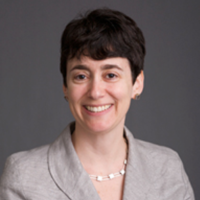
Julie Cohen, Mark Claster Mamolen Professor of Law and Technology
Professor Cohen teaches and writes about surveillance, privacy and data protection, intellectual property, information platforms, and the ways that networked information and communication technologies are reshaping legal institutions. She is the author of Between Truth and Power: The Legal Constructions of Informational Capitalism (Oxford University Press, 2019), Configuring the Networked Self: Law, Code, and the Play of Everyday Practice (Yale University Press, 2012), and numerous articles and book chapters, and she is a co-author of Copyright in a Global Information Economy (Wolters Kluwer, 5th ed. 2020). She is a faculty co-director of the Institute for Technology Law and Policy, a faculty advisor of the Center on Privacy and Technology, and a member of the Advisory Board of the Electronic Privacy Information Center. Prior to joining the Law Center faculty in 1999, Professor Cohen was Assistant Professor of Law at the University of Pittsburgh School of Law. She previously practiced with the San Francisco firm of McCutchen, Doyle, Brown & Enersen, where she specialized in intellectual property litigation. She was law clerk to Judge Stephen Reinhardt of the United States Court of Appeals for the Ninth Circuit.

Amanda Levendowski, Associate Professor of Law
Amanda Levendowski is the Founding Director of the Intellectual Property and Information Policy Clinic (iPIP) and an Associate Professor of Law. Her projects and research explore law, technology, and justice. She received the Public Knowledge 20/20 Visionaries Award, which recognized 20 future leaders in technology policy advocacy, and a Gender+ Justice grant for her work on face surveillance.
The iPIP Clinic was founded in 2019 and focuses on counseling and policy work for individuals, non-profits, and other organizations that engage with intellectual property and information policy issues from a social justice perspective. Students’ casework is accompanied by a seminar that examines ten substantive iPIP doctrines through a social justice lens and teaches students how to edit Wikipedia. Details about the iPIP Clinic’s work can be found here.
Her scholarship explores novel legal strategies to promote social justice through intellectual property and cyberlaw. Much of her work uses intellectual property laws to counter technological threats, including nonconsensual intimate imagery, artificial intelligence bias, secretive surveillance technologies, invasive face surveillance, and opaque dystopian technologies. This work is complemented by pieces that provide fresh pedagogical approaches to problems at the intersection of teaching and technology, including how teaching doctrine in clinics can amplify justice readiness and why editing Wikipedia can dismantle harmful data cartels. Her most recent scholarship consists of articles, an edited volume, and a book chapter that use intersectional feminism to understand how cyberlaws oppress and liberate marginalized people. She is also working on a biography of Barbara Ringer, the lead architect of the 1976 Copyright Act.
Amanda is a Faculty Advisor to the Technology Law and Policy Institute and the Disability Law Students Association, and she was nominated to the Office of Disability Services Faculty Advisory Board. She is also the founder of the Cyberspace and Technology (CAT) Lab.
Before joining Georgetown, she co-taught the NYU Technology Law & Policy Clinic, where she was an Engelberg Center Fellow and affiliate researcher with the Information Law Institute. She previously worked in the New York offices of Cooley and Kirkland & Ellis. She received her J.D. from New York University, where she received the Walter J. Derenberg Prize for copyright law and was nominated to the Order of the Barristers, and her B.A. from New York University, where she created a concentration in Publishing, Copyright, and Technology.

Maggie Little, Professor of Philosophy and Director of Ethics Lab
Dr. Little is Senior Research Scholar at the Kennedy Institute of Ethics, a Professor of Philosophy at Georgetown, and the founder and Director of Ethics Lab, a unique team of philosophers and designers that develops new methods to build ethical frameworks that better address real-world problems. Ethics Lab brings together deep ethical expertise with creative methods from Design to teach students and empower experts to address the most urgent issues of our time to responsibly shape the future. Ethics Lab works in three primary ways:
- Innovate and deliver new cutting edge courses in the areas that programs and learners need next
- Infuse ethics across the curriculum through our Embedded Ethics program
- Provide ethics-centered consultation and facilitation to research, policy, and industry teams
Dr. Little is a Rhodes Scholar and fellow of the Hastings Center, she has twice served as Visiting Scholar in residence at the National Institutes of Health Department of Bioethics, and was appointed to the Ethics Committee of the American College of Obstetrics and Gynecology. She is co-founder of The Second Wave Initiative, which works to promote responsible research into the health needs of pregnant women.
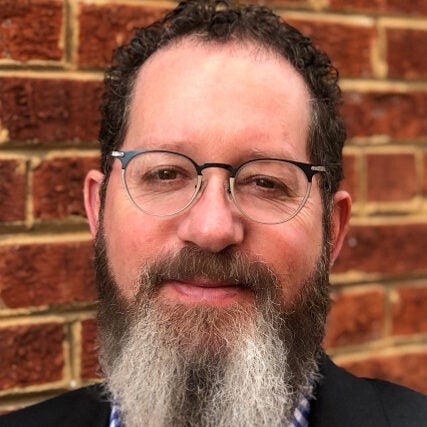
Mark Maloof, Professor of Computer Science
Mark Maloof is a professor in the Department of Computer Science at Georgetown University. His research interests include machine learning, data mining, on-line learning algorithms, concept drift, and applications of machine learning and data mining to computer security. He has taught the department’s introductory courses as well as upper-class and graduate courses on artificial intelligence and on machine learning. Mark led the effort that established Georgetown’s first graduate programs in computer science, and served as the first director of the department’s master’s and Ph.D. programs. He has served as a consultant to industry, government, and nonprofit organizations.
Mark’s recent research has included: a Bayesian approach to concept drift, paired learners for concept drift, ensemble methods for concept drift, detecting insider threats, applications of machine learning to detecting unknown malicious executables, learners with partial instance memory, analysis of algorithms using ROC components of variance, machine learning for improving building detection in overhead imagery.
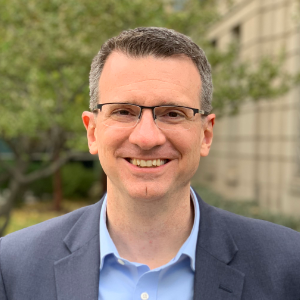
Dewey Murdick, Research Professor and Director of the Center for Security and Emerging Technology (CSET)
Dewey Murdick is the Director of Georgetown’s Center for Security and Emerging Technology (CSET). Prior to joining CSET as its founding Director of Data Science, he was the Director of Science Analytics at the Chan Zuckerberg Initiative, where he led metric development, data science, and machine-learning and statistical research for Meta and science-related initiatives. Dewey served as Chief Analytics Officer and Deputy Chief Scientist within the Department of Homeland Security. At IARPA, he led program managers and programs in high-risk, high-payoff research in support of national security missions.
Dewey has also held positions in intelligence analysis, research, software development, and contract teaching. He holds a Ph.D. in Engineering Physics from the University of Virginia and a B.S. in Physics from Andrews University. He is the recipient of the DHS Under Secretary’s Award for Outstanding Collaboration, ODNI’s Exceptional Achievement Award, the Distinguished Analysis Award for Excellence in Intelligence Community Collaboration and Analytic Insight, and the National Ground Intelligence Center Commander’s Civilian of the Year Award.
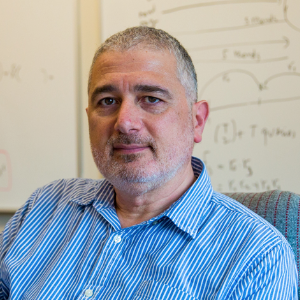
Kobbi Nissim, Professor of Computer Science and Affiliate Professor of Law
Kobbi Nissim is a Professor and Robert L. McDevitt, K.S.G., K.C.H.S. and Catherine H. McDevitt L.C.H.S. Term Chair in Computer Science and an Affiliate Professor at Georgetown Law. Before Joining Georgetown he was at the Department of Computer Science, Ben-Gurion University and a Senior Research Fellow at the Center for Research on Computation and Society, Harvard University.
Professor Nissim studied at the Weizmann Institute of Science, under the supervision of Prof. Moni Naor. His research interests include working towards establishing rigorous practices for privacy in computation: identifying problems that result from the collection, sharing, and processing of information and formalizing these problems and studying them towards creating solid practices and technological solutions. He is particularly interested in intersection points between privacy and various disciplines within and outside computer science including cryptography, machine learning, game theory, complexity theory, algorithmics, statistics, databases, and more recently privacy law and policy.

Paul Ohm, Professor of Law
Paul Ohm specializes in information privacy, computer crime law, intellectual property, and criminal procedure. He is a professor at Georgetown Law and serves as a faculty director for the Center on Privacy and Technology at Georgetown. In his work, Professor Ohm tries to build new interdisciplinary bridges between law and computer science, focusing on how evolving technology disrupts individual privacy. From 2012 to 2013, he served as Senior Policy Advisor to the Federal Trade Commission, and is commonly cited and quoted by news organizations including the New York Times, Wall Street Journal, and NPR.
Ohm began his academic career on the faculty of the University of Colorado Law School. Before becoming a professor, he served as a trial attorney in the U.S. Department of Justice’s Computer Crime and Intellectual Property Section, and clerked for judges in the United States Court of Appeals and the United States District Court for the Central District of California. He is a graduate of the UCLA School of Law and Yale University. Professor Ohm blogs at Freedom to Tinker.

Seth Perlow, Associate Professor of English
Seth Perlow specializes in twentieth-century and contemporary US literature, poetry and poetics, new media studies, and critical theory. His research and teaching are particularly focused on avant-garde US poetry since 1945, the cultural history of electronics, and postmodern US fiction.
His book, The Poem Electric: Technology and the American Lyric (new window) (University of Minnesota Press, 2018), traces a lineage of poets who use electronics to distinguish poetry from critical thinking. He edited Gertrude Stein’s Tender Buttons: The Corrected Centennial Edition (new window) (City Lights, 2014), which earned a Seal of Approval from the MLA Committee on Scholarly Editions. His scholarship has appeared or is forthcoming in The New Emily Dickinson Studies (new window), Criticism (new window), Paideuma (new window), Convergence (new window), The Wallace Stevens Journal (new window), and elsewhere. His shorter essays about poetry and society have appeared or are forthcoming in the Washington Post (new window), Public Books (new window), the Los Angeles Review of Books, and Post45: Contemporaries. His poetry has appeared in Carolina Quarterly, The Cortland Review, The Common (new window), and elsewhere. Before coming to Georgetown, he was assistant professor of English at the University of Oklahoma and the 2014-15 NEH Postdoctoral Fellow in Poetics (new window) at Emory University’s Fox Center for Humanistic Inquiry. He is currently working on a book-length study about literary handwriting analysis in electronic media, tentatively titled “The Digital Hand: Electronics and Literary Manuscripts.”
At Georgetown he offers courses on twentieth-century and contemporary American literature, poetry and poetics, and media history and theory. He is also an affiliate of the American Studies, Film and Media Studies, and Writing Programs.

Elissa Redmiles, Assistant Professor, Computer Science
Dr. Elissa M. Redmiles is an Assistant Professor at Georgetown University in the Computer Science Department and a Faculty Associate at the Berkman Klein Center for Internet & Society at Harvard University. She was previously a faculty member at the Max Planck Institute for Software Systems and has additionally served as a consultant and researcher at multiple institutions, including Microsoft Research, Facebook, the World Bank, the Center for Democracy and Technology, and the Partnership on AI. Dr. Redmiles received her B.S. (Cum Laude), M.S. and Ph.D. in Computer Science — with a concentration in Survey Methodology — from the University of Maryland.
Dr. Redmiles uses computational, economic, and social science methods to understand users’ security, privacy, and online safety-related decision-making processes. Her work specifically investigates inequalities that arise in these processes in order to ultimately design systems that facilitate safety equitably across users. Dr. Redmiles current projects focus on security, privacy & safety in digital labor, digital intimacy, digitally-mediated offline interactions, and medical data donation; building transparency tools for privacy enhancing technologies such as differential privacy; and measuring biases in and ethics of AI-based technologies. Her research has received multiple paper recognitions at USENIX Security, ACM CCS, ACM CHI, ACM CSCW, and ACM EAAMO and has been featured in popular press publications such as the New York Times, Wall Street Journal, Scientific American, Rolling Stone, Wired, and Forbes.

Micah Sherr, Professor of Computer Science
Micah Sherr is the Callahan Family Professor of Computer Science in the Computer Science Department at Georgetown University. His academic interests include privacy-preserving technologies, electronic voting, wiretap systems, and network security. He participated in two large-scale studies of electronic voting machine systems, and helped to disclose numerous architectural vulnerabilities in U.S. election systems. His current research examines the security properties of legally authorized wiretap (interception) systems and investigates methods for achieving scalable, high-performance anonymous routing. Micah received his B.S.E., M.S.E., and Ph.D. degrees from the University of Pennsylvania. He is a recipient of the NSF CAREER award.

Lisa Singh, Professor of Computer Science
Dr. Lisa Singh is a Professor in the Department of Computer Science and a Research Professor in the Massive Data Institute (MDI) at Georgetown University. She has authored/co-authored over 70 peer reviewed publications and book chapters related to data-centric computing, i.e. data mining, data privacy, data visualization, and data science. Her interdisciplinary research has been supported by NSF, ONR, DARPA, and SSHRC.
Dr. Singh’s current projects include learning from public, open source big data to advance social science research involving the understanding of human behavior and opinion, identifying and quantifying noise and poor-quality information on social media, developing methods and tools to better understand forced movement due to conflict, and studying privacy on the web. Dr. Singh has also recently organized three NITRD and NSF sponsored workshops involving future directions of big data research and is currently involved in different organizations working on increasing participation of women in computing and integrating computational thinking into K-12 curricula.
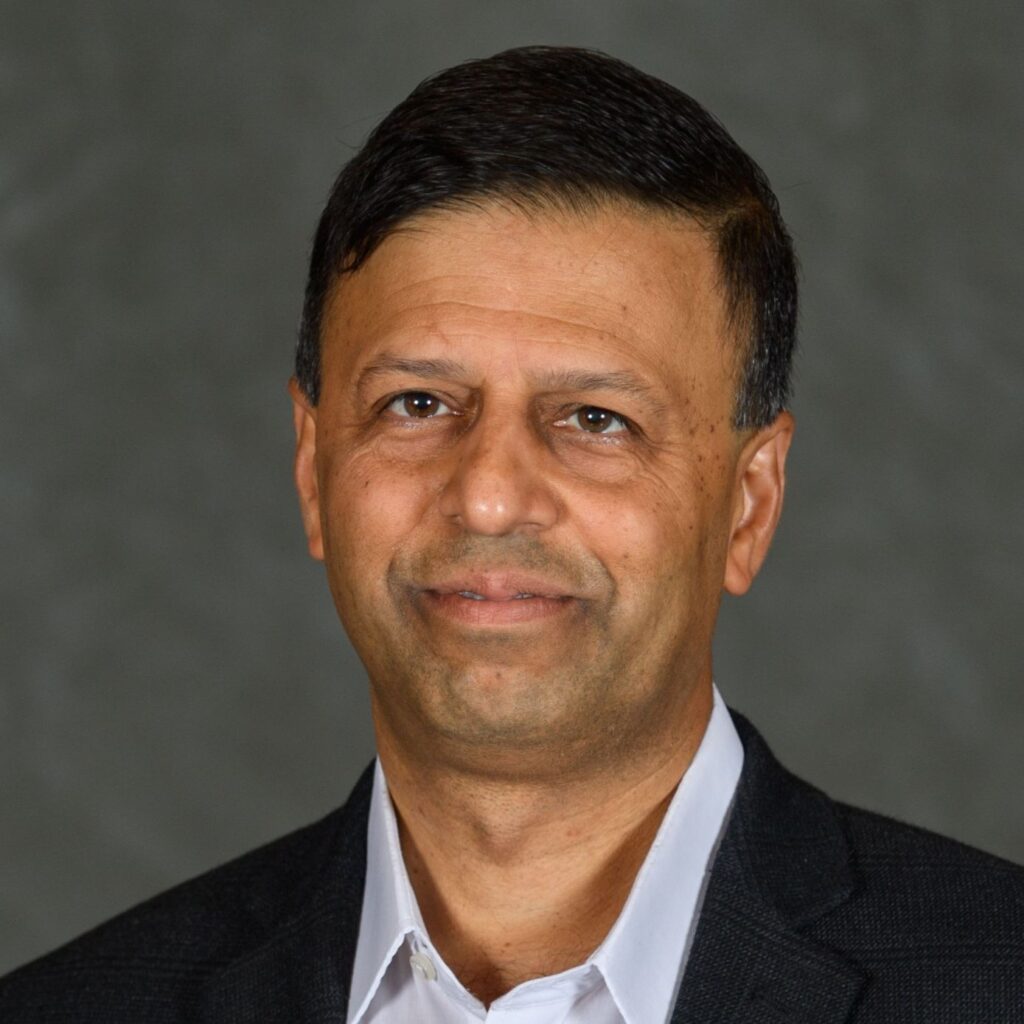
Nitin Vaidya, Professor of Computer Science
Nitin Vaidya is the McDevitt Chair of Computer Science at Georgetown. He received Ph.D. from the University of Massachusetts at Amherst. Dr. Vaidya previously served as an Associate Head and Professor in Electrical and Computer Engineering at the University of Illinois at Urbana-Champaign. He has co-authored papers that received awards at several conferences. He is a fellow of the IEEE. Dr. Vaidya has served as the Chair of the Steering Committee for the ACM PODC conference, as the Editor-in-Chief for the IEEE Transactions on Mobile Computing, and as the Editor-in-Chief for ACM SIGMOBILE publication MC2R.
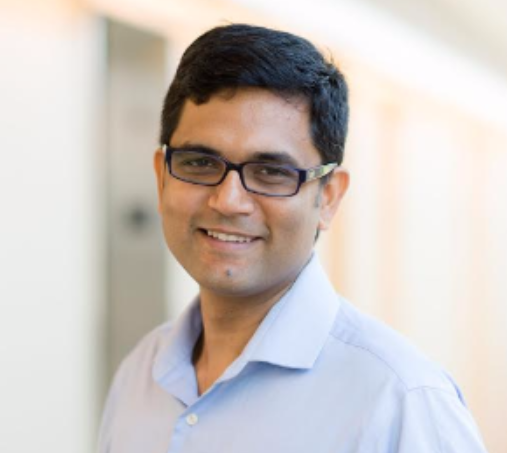
Rajesh Veeraraghavan, Associate Professor of Science Technology and International Affairs (STIA)
Rajesh Veeraraghavan is an Associate Professor of Science Technology and International Affairs (STIA) Program at Georgetown University’s School of Foreign Service.
He was a postdoctoral fellow at the Watson Institute of International and Public Affairs at Brown University and was previously a Fellow at the Berkman Center at Harvard University. He works in the intersection of information technology, development, and governance, with a focus on India. His research combines both the design and study of technological solutions to development and governance problems. He is currently interested in understanding the role of information and technology in making systems of governance more participatory. Previously, he was an associate researcher at the Technology for Emerging Markets group at Microsoft Research, India. His work focused on building appropriate technologies for socio-economic development. His work led to several research publications, patents as well as non-profit spin-off called Digital Green on whose board he serves currently. Before that, he worked as a software developer at Microsoft for several years in the US.
He has a Ph.D. from University of California, Berkeley’s School of Information, a Master’s degree in Computer Science from Clemson University, Master’s degree in Economics from Cleveland State University, and Bachelor’s degrees in Economics and Management from Birla Institute of Technology & Science, Pilani, India. His upcoming classes at Georgetown will focus on information, technology and governance, the role of technology in socio-economic development and designing civic technologies to see the state.
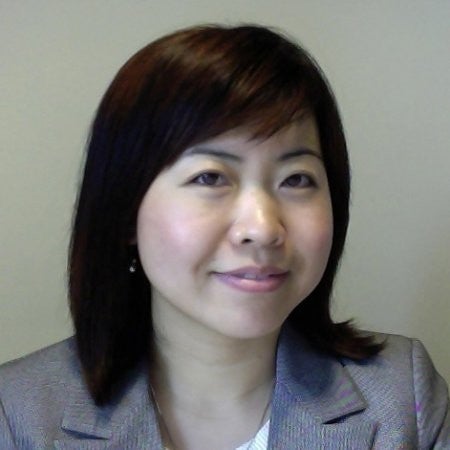
Grace Hui Yang, Associate Professor Of Computer Science
Grace Hui Yang is associate professor in the Department of Computer Science at Georgetown University. She received her Ph.D. and Master’s degrees in Computer Science from the School of Computer Science at Carnegie Mellon University, and Master’s and Bachelor’s degrees in Computer Science from at the National University of Singapore. Her research interests include Information Retrieval, Deep Reinforcement Learning, Machine Learning, Ontology, Question Answering, and Privacy
